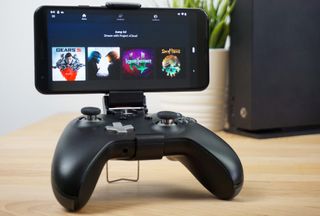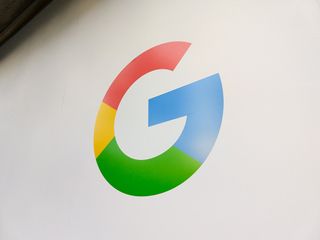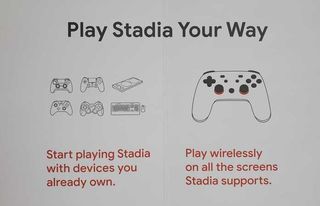Why Google Stadia doesn't stand a chance against Microsoft's Project xCloud
Google Stadia is now available, and reviews have been mixed. Google has far bigger problems if it wants to compete with Project xCloud, though.

Google's game streaming platform Stadia is here, and reviews have been a bit mixed. Beyond the laughably limited library, questionable device restrictions, and awkward pricing model, many reviewers are simply suggesting that the quality of service is inconsistent at best. First impressions are, as they say, everything, and Stadia seems to have stumbled at the first hurdle.
Microsoft's nascent competitor, Project xCloud, is already proving itself to be an incredibly fierce rival, despite not being widely available. Recent announcements at Microsoft's X019 event and elsewhere have detailed a platform that isn't only more consumer-friendly, but crucially, more developer-friendly. Like any streaming service, content is king, and Microsoft is crushing Google on that front before the platform has even gone live to the public.
Still, Microsoft has this uncanny ability to forfeit substantial advantages to competitors owing to internal politics, complacency, or a combination of both. If Microsoft loses the streaming race to Google, it'll be the result of a genuinely spectacular failure, because the sheer volume of advantages Project xCloud has makes me almost feel sorry for Google (almost).
Let's assume for the sake of argument that both platforms have identical (and good) service quality when it comes to latency and examine just how many disadvantages Google has to overcome.
xCloud is Xbox, Xbox is xCloud

As Microsoft has learned over the years, developers are gods when it comes to building a new platform. The chicken and egg scenario — where developers won't build content for a small platform, and users won't help a platform grow without content — is effectively what killed Windows Phone. Developer support has often given rise to questions about the future viability of the Universal Windows Platform (UWP) in general. The lack of third-party apps and integration also led to Cortana being relegated to a Clippy-replacement, in the wake of Amazon's consumer-oriented Alexa. Microsoft is great at screwing up when it comes to building new platforms, but Project xCloud is different.
Project xCloud's server blades are comprised of repurposed Xbox One consoles, with an identical development environment. Developers and publishers don't have to lift a finger to get their games onto Microsoft's streaming platform. They simply have to agree to it. For developers supporting Stadia, those games have to be ported to Google's Linux-based system, which for many developers won't make a great degree of business sense unless Google is offsetting costs with subsidies or incentives.
At X019, Microsoft reiterated that literally, thousands of Xbox One games are ready to go live in XCloud today, pending agreements with devs. In a complimentary flex, they added dozens of extra games to the Project xCloud preview program, dwarfing Stadia's paltry offering overnight.
Get the Windows Central Newsletter
All the latest news, reviews, and guides for Windows and Xbox diehards.
While there will always be questions about which developers will opt to support Project xCloud, Microsoft is also ensuring that it will have a large amount of first-party content to hit the service with massive investments in its own Xbox Game Studios.
Xbox Game Studios is a juggernaut
Wasteland 3 is one of many games coming to Xbox Game Pass.
Like Netflix Originals, Microsoft's Xbox Game Studios is becoming a juggernaut in its own right, acquiring various studios and major industry talent from all over the world. The investment in content is undeniable, and Microsoft is committing all of these games to Xbox Game Pass, and thus, Project xCloud on day one, alongside their retail versions.
Xbox Game Studios is working on dozens of games. From smaller titles like the survival-oriented Grounded to larger experiences like Halo Infinite, Microsoft is trying to ensure it has something for everyone, with a regular release cadence.
On the flip side, Google has yet to show any serious meat in its own first-party efforts. The library it's offering today is comprised of older games, save for a couple of heavy hitters most people likely already own. One day, Google may have its own Halo or Mario, but in 2019, Stadia looks anemic.
Google just kind of ... sucks

The pricing model for Stadia is odd. Microsoft is offering up all of its first-party games along with dozens of others for a monthly $10 to $15 payment. Redmond also confirmed at X019 that Project xCloud streaming would be included in Xbox Game Pass, ensuring you get all of this content on your external devices at no extra cost.
Conversely, Google is expecting its users to pay premium prices for games that cannot be played offline and are wholly dependent on latency and the service quality on Stadia. The subscription will net you 4K streams, but unless you have a beefy connection and unlimited data allowance, it almost seems counter-intuitive to even try. For UHD gaming, it makes far more sense to get an Xbox One X or a PlayStation 4 Pro rather than hope Stadia can reliably provide a 4K experience.

All of this ignores the fact Stadia is only available on a tiny slice of devices, including Google's Pixel phones and some of its other devices. XCloud will be available on any compatible Android phone, Windows PCs, and tablets, and most likely iOS down the line.
Google has also proven itself to be a generally hostile company in recent years, far-flung from the famous "Don't be evil" company motto that it has since shelved. This includes billions of dollars in anti-trust fines in Europe, privacy violation investigations in the U.S., and also recently stealing the health records of millions of Americans without consent.
Microsoft's race to lose

Despite all of the advantages Microsoft has with Project xCloud, it has this spectacular ability to misfire when it comes to building new platforms. To suggest xCloud is a definite win is not something I'm confident enough to do, but Microsoft's advantages are as obvious as they are numerous.
Microsoft's advantages are as obvious as they are numerous.
Google certainly has some advantages of its own, particularly when you factor in YouTube and Google Search, and its willingness to manipulate its search monopoly to its favor. Purely from a service standpoint, being able to go from a YouTube video directly into the game is a cool feature that Microsoft can only emulate with its very small Mixer community and negligible Bing audience.
Getting Project xCloud onto Windows and the millions of low-power devices will certainly help boost xCloud's chances as well, but there are other players in the space. Sony's PlayStation Now is available on Windows PC today and works extremely well, although Sony hasn't shown the same eagerness to put its first-party content onto the service.
Google Stadia might have beaten Microsoft to store shelves, but Project xCloud remains the far more compelling and affordable solution. Questions remain about scalability, live service quality, and hardware accessories for xCloud.
Conventional wisdom suggests slow and steady wins the race, but like all things, only time will tell.
Xbox
Main

Jez Corden is a Managing Editor at Windows Central, focusing primarily on all things Xbox and gaming. Jez is known for breaking exclusive news and analysis as relates to the Microsoft ecosystem while being powered by tea. Follow on Twitter @JezCorden and listen to his XB2 Podcast, all about, you guessed it, Xbox!
